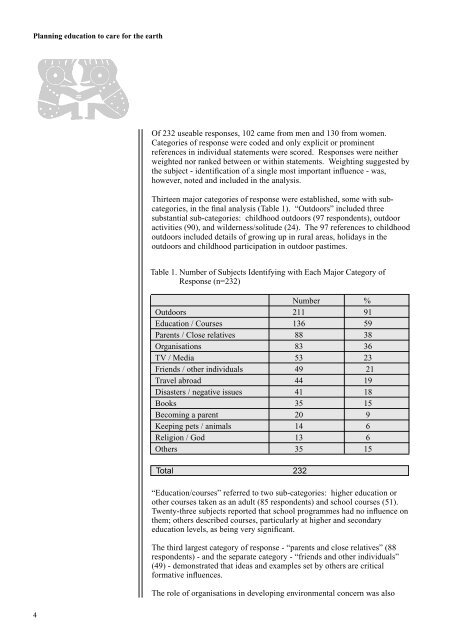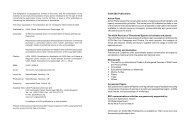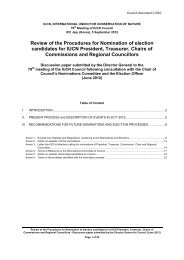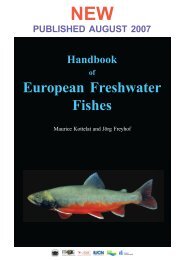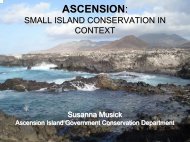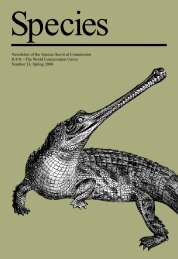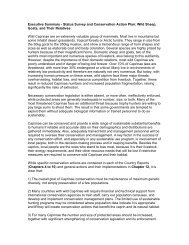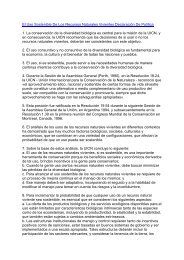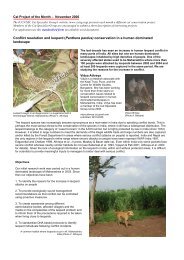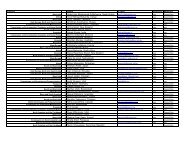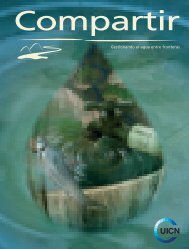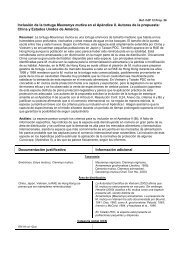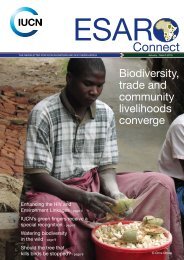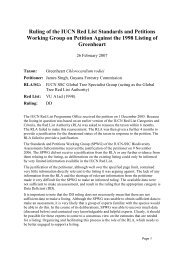Planning education to care for the earth - IUCN Knowledge Network
Planning education to care for the earth - IUCN Knowledge Network
Planning education to care for the earth - IUCN Knowledge Network
Create successful ePaper yourself
Turn your PDF publications into a flip-book with our unique Google optimized e-Paper software.
<strong>Planning</strong> <strong>education</strong> <strong>to</strong> <strong>care</strong> <strong>for</strong> <strong>the</strong> <strong>earth</strong>Of 232 useable responses, 102 came from men and 130 from women.Categories of response were coded and only explicit or prominentreferences in individual statements were scored. Responses were nei<strong>the</strong>rweighted nor ranked between or within statements. Weighting suggested by<strong>the</strong> subject - identification of a single most important influence - was,however, noted and included in <strong>the</strong> analysis.Thirteen major categories of response were established, some with subcategories,in <strong>the</strong> final analysis (Table 1). “Outdoors” included threesubstantial sub-categories: childhood outdoors (97 respondents), outdooractivities (90), and wilderness/solitude (24). The 97 references <strong>to</strong> childhoodoutdoors included details of growing up in rural areas, holidays in <strong>the</strong>outdoors and childhood participation in outdoor pastimes.Table 1. Number of Subjects Identifying with Each Major Category ofResponse (n=232)Number %Outdoors 211 91Education / Courses 136 59Parents / Close relatives 88 38Organisations 83 36TV / Media 53 23Friends / o<strong>the</strong>r individuals 49 21Travel abroad 44 19Disasters / negative issues 41 18Books 35 15Becoming a parent 20 9Keeping pets / animals 14 6Religion / God 13 6O<strong>the</strong>rs 35 15Total 232“Education/courses” referred <strong>to</strong> two sub-categories: higher <strong>education</strong> oro<strong>the</strong>r courses taken as an adult (85 respondents) and school courses (51).Twenty-three subjects reported that school programmes had no influence on<strong>the</strong>m; o<strong>the</strong>rs described courses, particularly at higher and secondary<strong>education</strong> levels, as being very significant.The third largest category of response - “parents and close relatives” (88respondents) - and <strong>the</strong> separate category - “friends and o<strong>the</strong>r individuals”(49) - demonstrated that ideas and examples set by o<strong>the</strong>rs are critical<strong>for</strong>mative influences.The role of organisations in developing environmental concern was also4


